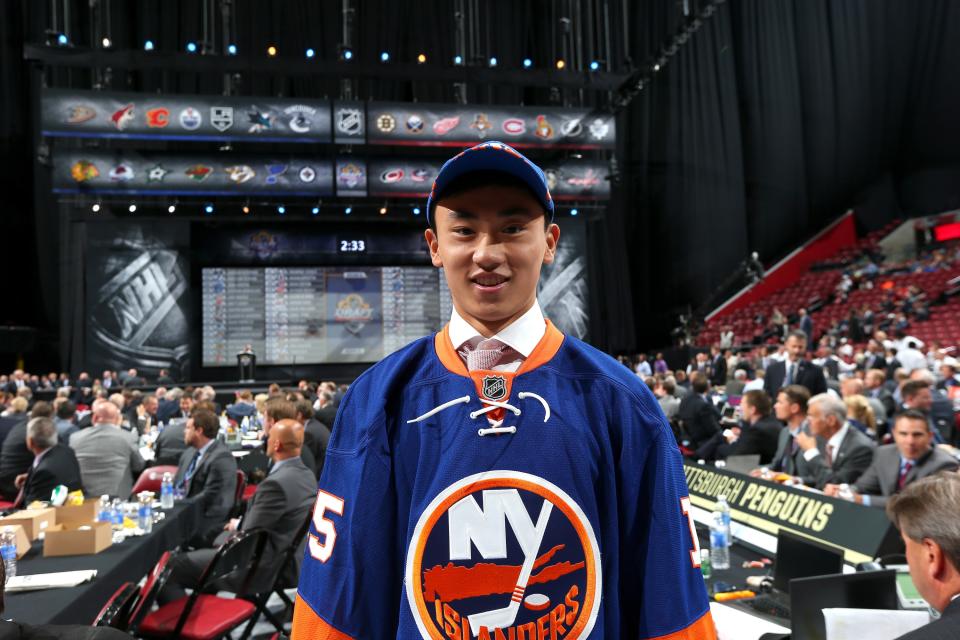Andong Song becomes first player from China drafted in NHL

SUNRISE, Fla. – When Andong Song was a six-year-old boy growing up in Beijing, he kept getting sick. So his mother suggested he try playing a sport.
“Hockey came up as one of the options,” said Song, “and I just fell in love with it.”
On Saturday afternoon in Sunrise, Fla., that love of hockey led to an historic moment for hockey: Song, 18, became the first player born in China to ever get drafted by an NHL team, selected in the sixth round, No. 172 overall, by the New York Islanders.
“It feels great. Unbelievable experience. Really honored to be the first,” he said.
Song said his agent had an inkling that the Islanders would select him, but that the tension grew as the draft dwindled to its final rounds.
“I wasn’t really nervous until the Islanders got their fifth-round pick. After that, I was on my toes,” he said. “It’s the draft. You never know.”
The Islanders are part-owned by the Chinese-born Charles Wang, whom Song said he's yet to meet.
When the Islanders called his name, a large group around Song in the Florida Panthers’ home arena exploded in cheers – friends, siblings and his mother and father.
He had come a long way from his humble beginnings as a player.
“There were only two rinks in Beijing. It wasn’t even a full-sized NHL rink – it was sectioned off parts of the ice. That’s how I started,” he said.
At 10 years old, he moved to Canada to play hockey with the Oakville Rangers. At 15, he moved to New Jersey and played for Lawrenceville School. Having played both defense and forward, he said he prefers the former, having patterned his game after Hockey Hall of Famer Nicklas Lidstrom. “He doesn’t like to use the body as much. He’s just a skilled player,” he said.
Lidstrom was a star. Song, at least for a day, was as well: Chinese news services followed his progress, and a film crew trailed him around South Florida.
“Feels like I’m a star already," he said.
Song said he’d love to be an NHL star, at least to the players back home who have waited decades for someone to represent them in the world's most prestigeous hockey league. And Song said there's a growing number of players in China that will be monitoring him.
“When I started playing, there weren’t a lot of people playing. When I went back, after eight years since I’ve seen Chinese hockey, it’s tremendous how much they’ve grown. I’m sure they’ll keep trying to catch North America and Europe,” said Song, who spends summers and holidays in Beijing.
The Asian market is one that the NHL, and hockey in general, have yet to crack. One thought was that the Olympics would help achieve that, as IIHF president Rene Fasel argued in 2013. “We have 500 hockey players in China, not 500 million or 500,000 but 500 out of population of 1.3 billion people and 60 ladies are playing,” Fasel said.
The next Winter Games are in Pyeongchang, South Korea. Song's hometown, Beijing, is bidding to host in 2022.
As for his future, Song hopes to play in the NCAA as his game develops. Then, hopefully, to not just become the first player from China drafted by an NHL team, but to be the first to play in the NHL.
“Being the first Chinese player is a lot of pressure, from people back home,” he said. “Good pressure. It’ll motive me to be a better player. Make them proud.”

 Yahoo Sport
Yahoo Sport 







































